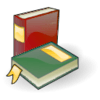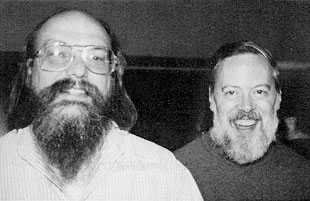C/Before You Start
< C
Objective
|
LessonOverviewIf you have never programmed before or you want a refresher on C, then this course is for you! The C language provides a basis for understanding core programming concepts and a general feel of how the computer works. If you know how to program in C, you'll be able to transition to other C-like languages like C++, Java, and C# with relative ease. You aren't just limited to learning programming languages either, because a lot of the concepts taught in this course are associated with the field of computer science. The Birth of C The C language didn't just happen over night. Time, people, and events where needed in order for this language to become a reality. So, how exactly did C come to its existence? In the early 1960's the idea of time-sharing become powerful. Large amounts of money and manpower were spent on programs that allowed a large number of people to access one computer from a terminal and use some of its resource, all at the same time! One computer was able to act like 100, allowing places like Universities to efficiently give its students access to a computer at a reasonable cost. Eventually, a time-sharing operating system called Multics became prominent in the time-sharing industry. Although Multics was revolutionary in some ways, it had many problems. It code was large and complex, which meant it wasn't very efficient to modify the operating system. In the early 1970's, the people at Bell Labs got frustrated and fed up with Multics, so they decided to create their own operating system. Today, this operating system is known as Unix. It was originally written in assembly, which led to some problems, since it isn't very portable. The solution to their problem was going to be a programming language called B, but it had some problems and inefficiencies. Dennis Ritchie created a newer and better version of B that was called C; C being a lot more powerful than B. C was so powerful, that it was able to do the job and Unix was mostly rewritten in C. This allowed Unix to be ported to many different computers with relative easy. Soon C was used for other jobs, slowly becoming one of the most influential languages ever. C's UsesC is widely used in education, in application programs like text editors, windows based applications, in games like Quake III, in calculations like finding interest, and for sorting, maintaining and organizing large amounts of data. C programs are used in engineering applications like plotting of curves, integration and many more things. C has been used in very complex things also, e.g. Operating systems like Microsoft Windows, GNU/Linux and other Unices (SunOS, FreeBSD, et al) have also been written partly in C. Tools You'll Need
A C compiler is a program that takes source code and turns it into an executable file. To learn C, you'll need a computer and operating system that has a C compiler, although it's recommended that you have an operating system like Windows, Linux, or Apple. All though it's not recommended, you could use an operating system like MS-DOS and UNIX as long as there's a C compiler. Like it was stated earlier, you'll need a C compiler. Generally, these can be platform specific, so they will vary in usage and performance. A list of C compilers can be found here. Each compiler has its advantages and disadvantages, for example some compilers may cost money, but you should be able to find free ones. When downloading and installing the compiler, you'll need to strictly follow its manual on how to setup and use the compiler. If a compiler has a poor manual, it may be best to not use it. After you got the compiler, you'll need a way to write to a file. Generally, any non-fancy text editor will do. If you have an IDE, it wouldn't hurt to use that and if you don't, stick with the text editor for now. Now you have all the tools you need to start using C. Assignments Are Good For YouThis course provides many questions and exercises that test to see if you've understand the lesson. They are all contained with a section of the lesson called "Assignments" and are found at the end of the lesson. Although you're not required to do them, it's recommended that you complete the given assignments. Have Fun!Finally, I would like to tell you that programming can be a lot of fun. If you have that constant urge to learn, to know more, if you are inquisitive, then learning C is not only a good experience, it is also fun. Some words of wisdom, try to pace yourself when using this course. Going too fast or too slow can reduce the will to complete this course. |
Assignments
|
|